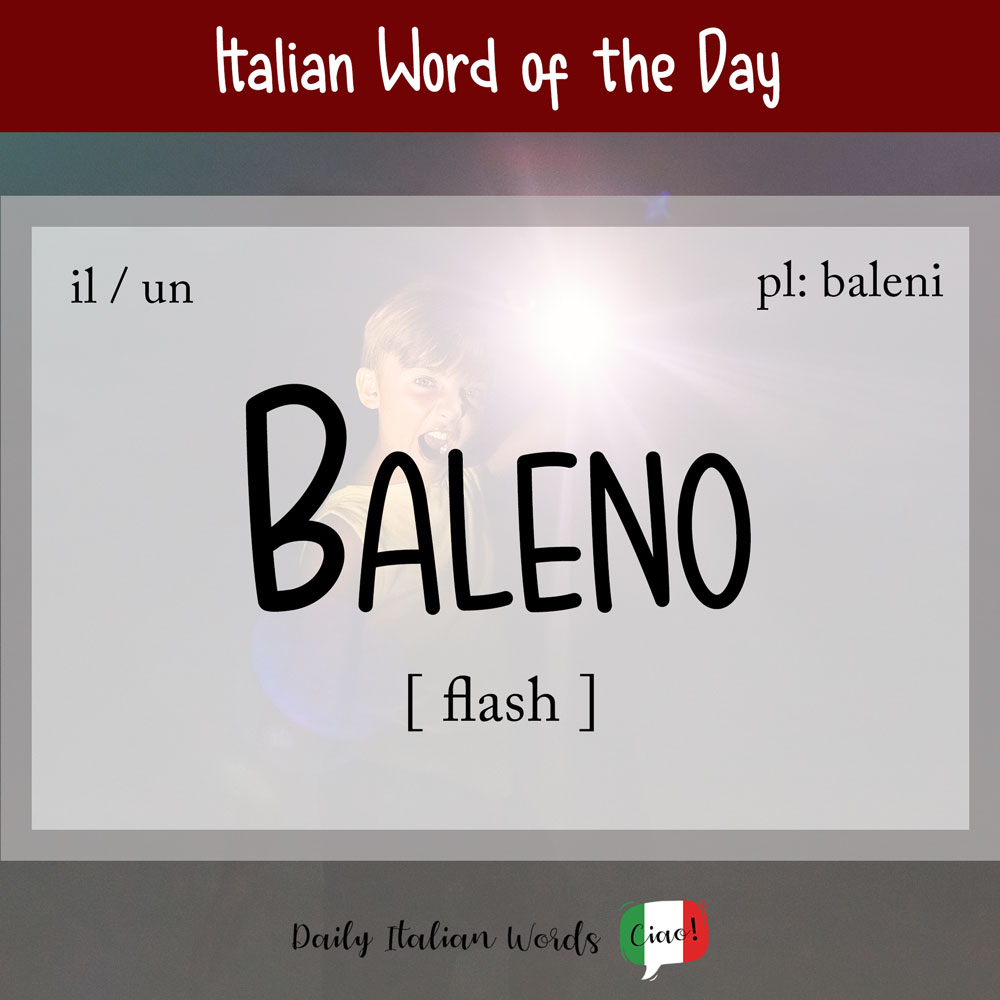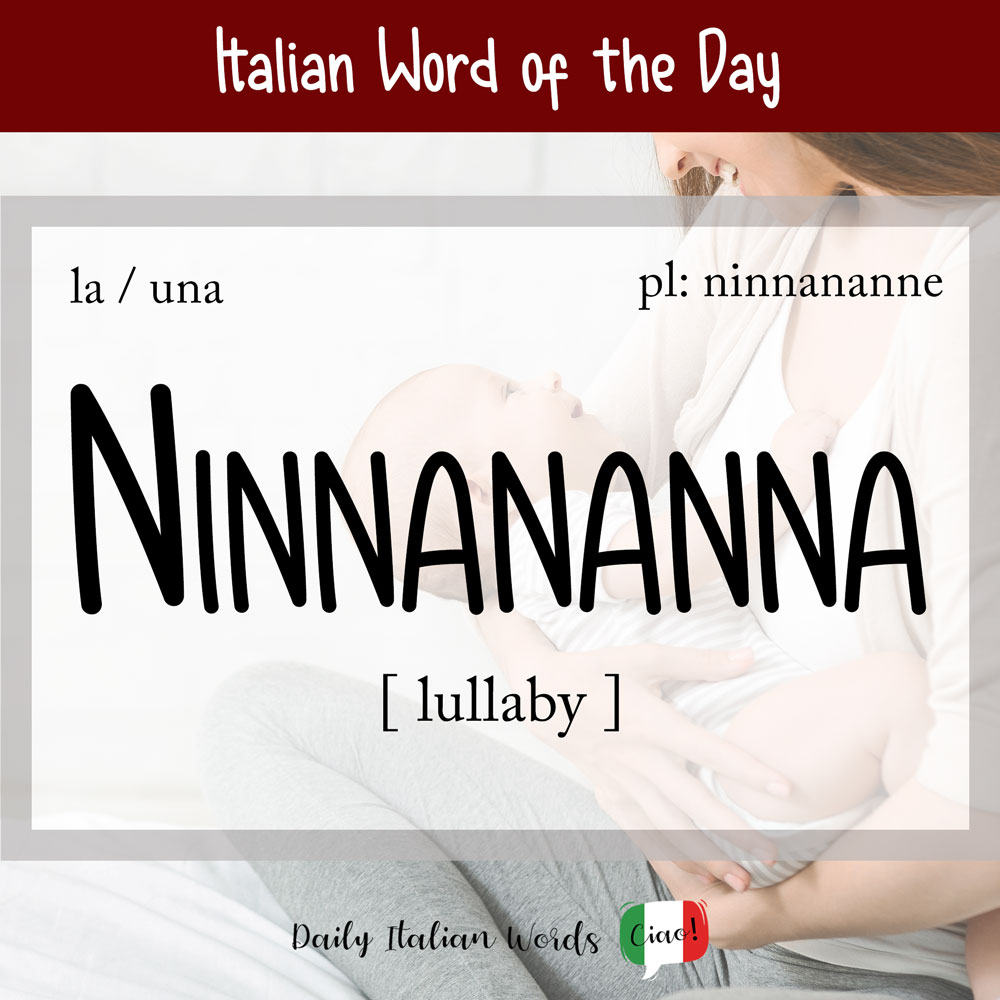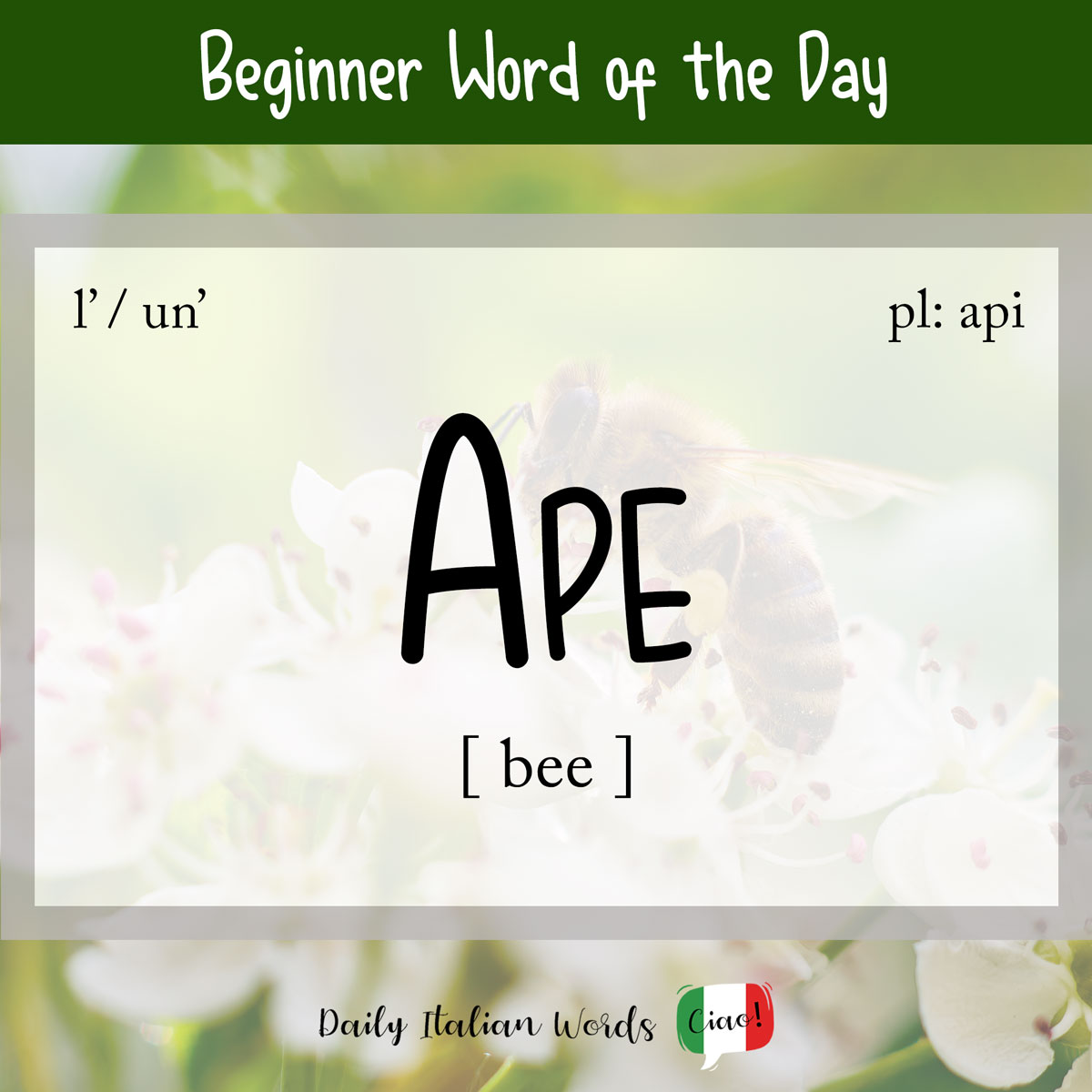Italian Word of the Day: Baleno (flash)
Baleno (masculine) is one way of saying flash or flare in Italian. It derives from the verb balenare which means to flash (in a literal sense) or to pop into one’s head (in a figurative sense). By extension, it can be used to refer specifically to a flash of lightning, though the synonyms lampo, fulmine …






